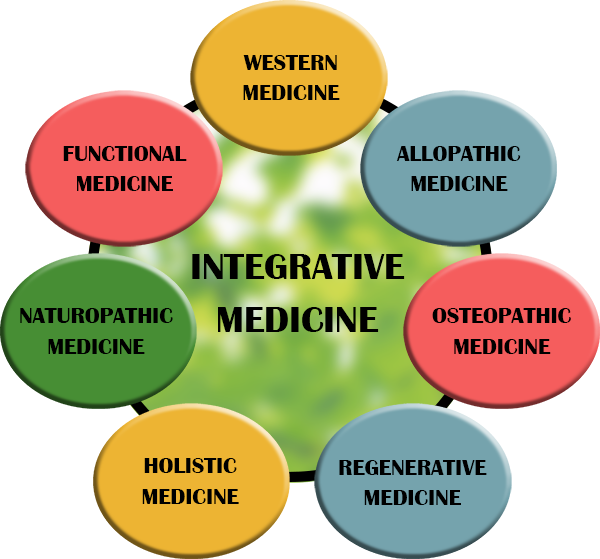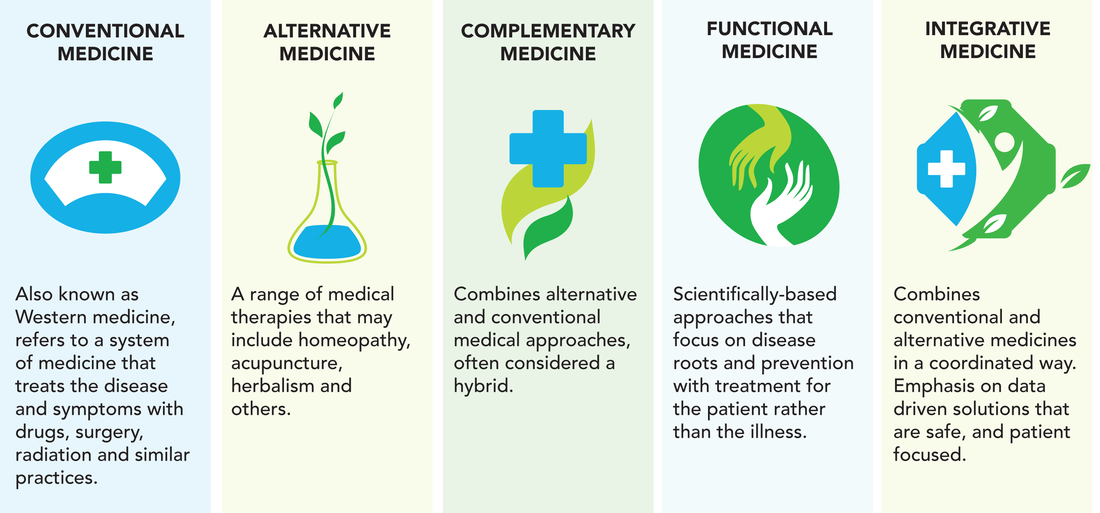The Value of the Integrative Medicine Curriculum in a FM Residency Program
Malalai Zoltani, MD and Chinedu Nwagwu, MD
SAMC Department of Family Medicine Residency Program
INTRODUCTION
Integrative Medicine is defined as a healing-oriented medicine that takes account of the whole person, including all aspects of lifestyle. It emphasizes the therapeutic relationship between practitioner and patient, is informed by evidence, and makes use of all appropriate therapies.
PATIENT CASES
- 56 yo F with h/o DM, HLD, HTN, morbid obesity- initial BMI 41, significant weight loss of 40 lbs in a year with lifestyle modification, anti-inflammatory diet, exercise and mindfulness. Patient was also able to come off of one DM and HTN medication.
- 35 yo M PMH of HLD and strong family h/o hyperlipidemia - pt reluctant to medications --> Significant improvement in HLD with garlic, Red Yeast Rice and CoQ10.
- 34 you F with PMH of DM type II, morbid obesity, iron deficiency anemia, chronic low back pain due to DJD and degenerative disc disease, and vitamin D deficiency. No pain control with NSAIDs - back pain improving with Yoga and meditation.
COURSE OVERVIEW
One Year Online Course
3 FM PGY3 residents elected to participate
Participate with a total of roughly 184 hours with the following understanding:
- Introduction to nutrition
- Micro nutrients and supplements
- vitamins, minerals, common dietary supplements, Microbiome
- The anti-inflammatory diet
- Physical activity and health
- introduction to mind-body medicine: stress, relaxation, health
- Environmental health
- Integrative sleep health
- Spirituality and health care
- Smoking cessation
- Integrative health assessment
- Mind-body modalities
- Botanical foundations
- Manual medicine, such as osteopathy, massage therapy, physical therapy, chiropractic
- Ayurveda, traditional Chinese medicine, neuropathy, homeopathy
- Energy medicine, introduction to functional medicine
- Pediatrics integrative medicine, respiratory health, mind-body pediatrics, pain management and pediatrics, integrative pediatric neurology ADHD and autism
- Integrative rheumatology
- Acute care
- Women's health, such as PMS, dysmenorrhea preconception counseling, infertility, PCOS, pregnancy, menopause, osteoporosis, female pelvic pain disorders, sexual health
- Chronic illness, obesity
- Integrative cardiology, integrative gastroenterology, integrative pain management, such as headache, and low back pain, cannabis and pain, integrative rheumatology
- Anxiety and depression
- Integrative endocrinology
- Integrative diabetes care
Certification Process
→ 3 hour Exam
→ Passing score 70%
Common Examples
Mind-body medicine is a branch of integrative medicine that focuses on the interaction between the mind and the body, and how this relationship can influence health and wellbeing. It recognizes that the mind and body are interconnected, and that mental, emotional, and spiritual factors can affect physical health, and vice versa.
Techniques and therapies that are used to promote health and wellbeing, including mindfulness, meditation, biofeedback, hypnosis, guided imagery, yoga, and tai chi.
Nutrition plays a vital role in maintaining health and preventing disease, and is often used in integrative medicine as a primary treatment or as a complementary therapy. Nutrition plays a crucial role in integrative medicine because it provides the building blocks for optimal health and can help prevent and manage a range of health conditions.
Turmeric is a spice that contains curcumin, a powerful anti-inflammatory and antioxidant compound. It is often used to treat arthritis, digestive disorders, and other inflammatory conditions.
Echinacea: This plant is often used to boost the immune system and treat respiratory infections, such as colds and flu.
Ginger is another anti-inflammatory plant that is commonly used to treat nausea, vomiting, and digestive issues.





